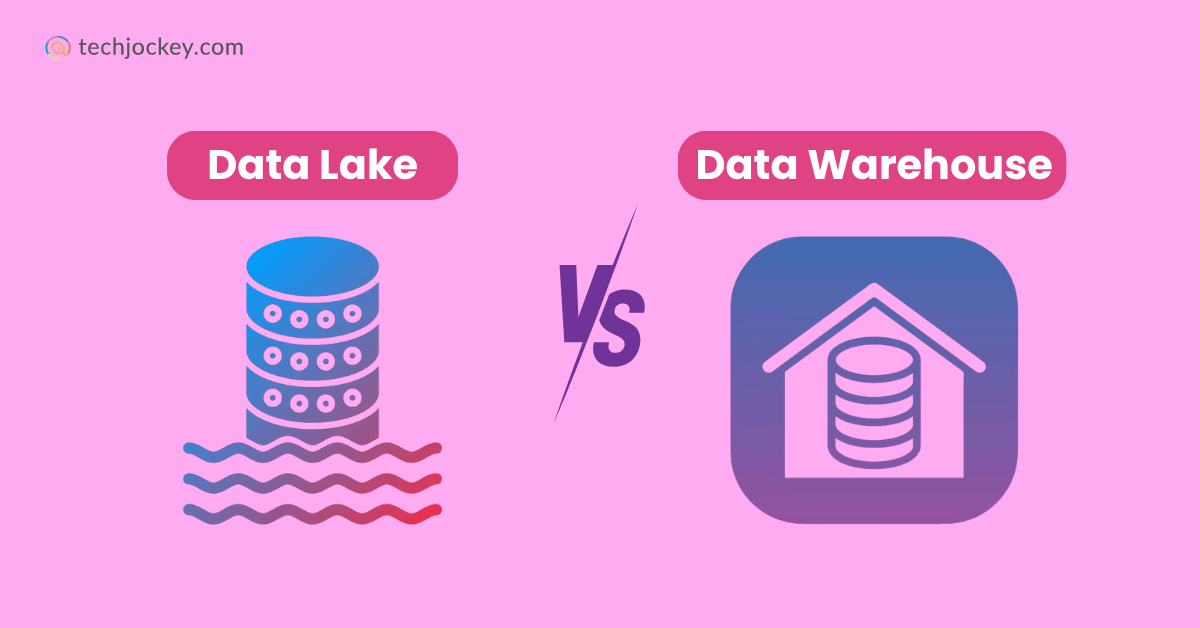
So, the data warehousing is a late 1980s concept when the term business data warehouse was given by the IBM researchers Barry Devlin and Paul Murphy.
It was a critical thinking to make the flow of data streamlined from the operational systems. This further helped in reducing redundancy and costs and making better data-based decisions.
On the other hand, data lake is a term given by James Dixon, who was the CTO at Pentaho at that time.
Data lake came out to be a modern solution to store huge volumes of raw, structured, and unstructured data in a single, scalable repository, often built on Hadoop systems.
This blog will learn about Data Lake vs Data Warehouse in detail.
A data lake is a storage system to keep a massive volume of data in its raw and natural format. It can store:
A data lake is flexible. It uses a ‘schema-on-read approach’ that means it stores everything as it is and provides structured data only when you need it for analysis.
Thus, it becomes an ideal storage for modern use cases such as advanced analytics, big data processing, and machine learning. Data lakes can live in an organization’s data centers or in the cloud. Cloud storage makes it more scalable for huge data volumes.
There are various data lake examples used by many organizations. These include Amazon S3, Google Cloud Storage, or distributed systems like Apache Hadoop HDFS.
One unique example is the Personal DataLake project at Cardiff University. It helps individuals collect and manage their personal big data in a single place.
Now, let’s discuss the advantages of data lakes.
It is a single-point system that brings all data together for analysis, reporting, and other intelligence tasks. Another name for a data warehouse is an enterprise data warehouse (EDW).
All the current and historical data from various sources are integrated into a single repository. These sources could be CRMs, ERPs, external APIs, flat files, etc.
A data warehouse works on a ‘schema-on-write approach’ and is not like the traditional databases optimized for daily transactions. It processes information using ETL or ELT and offers quality information to end users. This helps analysts and business managers in faster querying, reliable analytics, and better data decisions.
The data warehouses are likely to hold on to data in the form of relational tables and provide a better summary of large datasets.
There are many renowned cloud-based data warehouse software. Some of them are Amazon Redshift, Google BigQuery, and Snowflake. These are popular for high scalability and real-time analytics.
Snowflake
Starting Price
$ 2.20
Let’s discuss the advantages of Data Warehouse.
Amazon Redshift
Starting Price
Price on Request
Let’s break down data lakes and data warehouses differences in architecture, storage, and data flow:
Data flows in from sources like IoT devices, APIs, CRM, and ERPs, and is processed in batches or streams.
| Aspect | Data Lake | Data Warehouse |
|---|---|---|
| Data Support | Stores raw data and processes it later on | Stores structured data for better analysis |
| Storage Cost | Less cost – uses scalable storage systems | Higher cost for processing data in a structured format |
| Performance | Slower querying as data needs to be processed before reading | Faster querying as data is already in a structured and optimized format |
| Flexibility | Highly flexible; can store diverse data due to schema-on-read approach | Less flexible; schema-on-write requires defining the structure in advance |
| Data Processing | Supports both real-time streaming and batch processing | Batch-oriented, but use of modern tools can help in real-time data loading |
| Users & Access | Data scientists and engineers | Business analysts and managers |
You need to go through your data types and use cases before you make a choice between a data lake and a data warehouse.
Use a Data Lake when:
Use a Data Warehouse when:
Hybrid approach (Data Lakehouse):
Many companies go for a hybrid approach, ‘data lakehouse’. It combines both:
This works best when you need to store raw data but also want structured data layers for analytics and business reporting.
Conclusion
Data lakes and data warehouses serve the same role, yet in different ways.
Selecting one of them will rely on your objectives and data requirements. Most companies integrate the two and/or apply to have the best of both.
In the end, knowing Data lake vs data warehouse differences helps you build a data setup that fits your business and stays ready for the future.
Employee engagement has of late emerged as primary measure for seeing if a brand… Read More
HR operations may seem easily manageable on paper, but real experiences often tell different… Read More
Healthcare often feels complicated, slow, and scattered across many disconnected systems. Patients carry reports, repeat… Read More
The present-day workplace hardly bears any resemblance to the traditional setups of bygone eras. Diverse… Read More
Fruitful interaction in the modern market requires rapid speed, rich context, and genuine empathy. Shoppers… Read More
Staying compliant is one of the most important parts of running business. Labor laws,… Read More